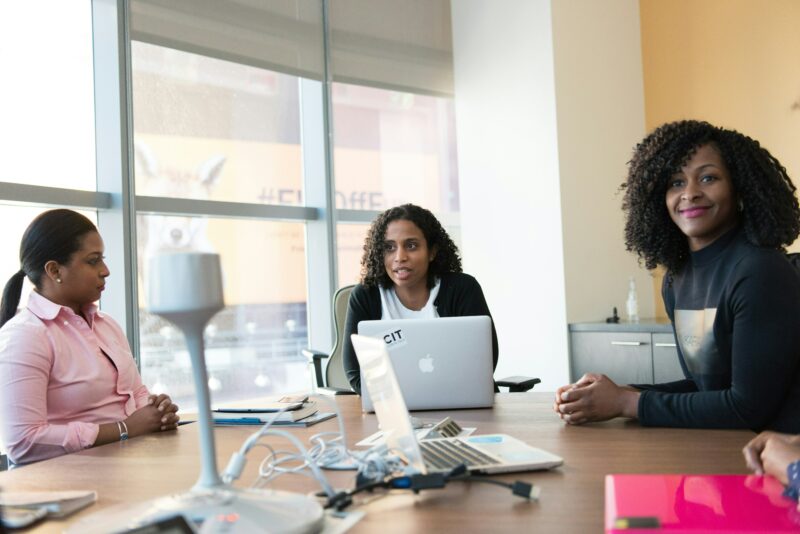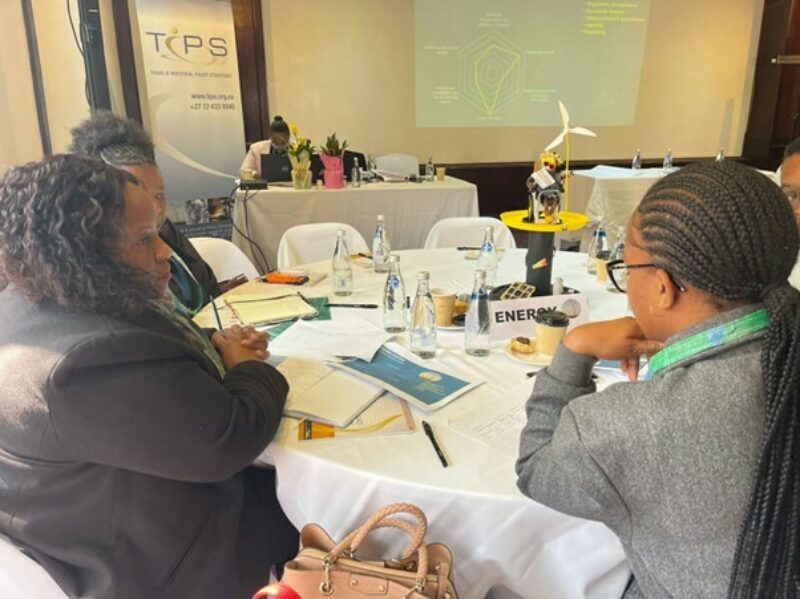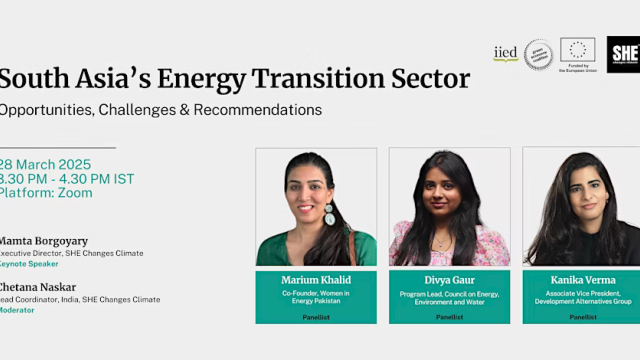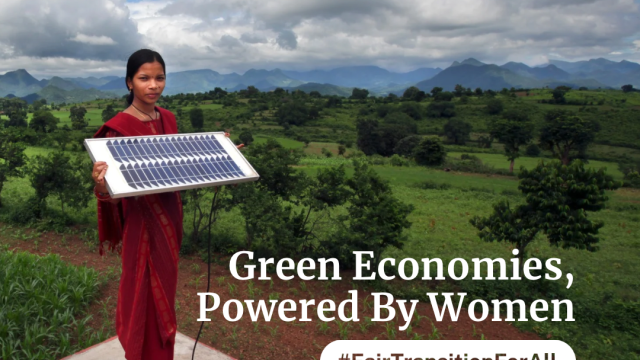Overcoming barriers to female-owned businesses in South Africa
Celebrating SA Women's Day, we explore unshackling access to finance for women entrepreneurs looking to scale up small green businesses

South Africa's Women's Day, celebrated on August 9th, commemorates the 1956 Women's March, during which approximately 20,000 women of all races protested the apartheid government's pass laws. This historic event is a symbol of women's strength, unity and resilience. However, today, 69 years later, women still experience several challenges entering a Just Transition as a means of building a more just, equitable and inclusive low-carbon economy.
The inclusion of women in a just transition is critical. No woman should be left behind.
Gender equality is an urgent imperative. Crises, conflict, and global trends exacerbate inequalities, including climate change, natural resource scarcity, and technological transitions. In many societies, reversals and backlash against gender equality, sluggish economic growth, and government fiscal and debt burdens compound the challenges (World Bank, 2024).11 Progress on Sustainable Development Goal 5 on gender equality is worryingly off-track. By some estimates, it will take 134 years for women and men to reach parity in income and legal rights (World Bank, 2021).
The World Economic Forum’s global gender gap score, which measures gender parity worldwide, stands at 68 per cent. At the current pace of improvement, it will take 268 years to close this gap (Priyanka Varma, 2024).2233 This means that in our lifetimes, our daughters’ lifetimes, and even our granddaughters’ lifetimes, we will not see a gender-equal world.
Addressing female inclusion in the Just Transition
Africa is prosperous with women entrepreneurs. The continent has the world's highest proportion of women entrepreneurs, and more than a quarter of all businesses were either started or run by women (Reuters & OECD, 2022). A Just Transition for these female-owned enterprises should mean equal access to opportunities and overcoming systemic barriers – access to land and finance.
Can a Just Transition be a solution to address Gender Equality?
A Just Transition for female-owned enterprises in green industries in South Africa involves creating an equitable environment where women can participate fully and benefit from the shift to a sustainable economy. This includes addressing systemic barriers, providing equal access to opportunities and resources, and recognising women's unique contributions to the green economy.
The question remains uncertain is how the Just Transition will speed up gender equality and inclusive opportunities for female-owned businesses. Clarity is needed in this area, and we need to put measures in place to track progress.
“ Women are exposed to climate vulnerability and have the means to address climate mitigation and adaptation - but female founders remain underfunded compared to male counterparts.”
An attempt is made by Trade Industrial Policy Strategies to undertake a study to examine business barriers that female-owned enterprises are experiencing entering new green industries. This study is led by Sustainable Researcher Elize Hattingh and supported by Economist Dr Michael Hector. This study unpacks green business barriers in the water, energy, and waste sectors. Round table discussions with female-owned entrepreneurs in these sectors were held in Pretoria at the TIPS Annual Forum 2024 on 31 July 2024.
From the roundtable discussions, it was clear that a robust shackle holding female-owned SMMEs back is access to inclusive finance, particularly in new green industries – these are uncharted waters, and investors perceive new green technologies as high-risk (Finance Watch, 2022).44 The study is currently underway, and the research report findings will be published by the end of August 2024 to inform government – The Presidential Climate Commission on Just Transition inclusion policies for SMME inclusion with a focus on gender equality.
Globally, micro-, small-, and medium-sized enterprises owned by women are underfunded by $1.7 trillion (Priyanka Varma, 2024).55 Closing the global credit gap for women would result in a 12 per cent increase in average annual income across all genders by 2030 (UN Women, 2024).66
There is a desperate need for more funding for female-owned enterprises in Africa (Reuters, 2023). Many women are affected and exposed to climate vulnerability. They do have the means to address climate mitigation and adaptation. Female founders remain underfunded compared to male counterparts (WorldBank, 2021). The South African White Paper (2023)77 unpacked current financing gaps for female founders, identified the barriers that female founders face when raising financing and reviewed existing interventions that unsuccessfully targeted these barriers.

There were crucial findings: 2019 South Africa had a $49B unmet financing demand for female founders (ICF, 2019). Over the 2019-2021 period, only 8% of $1M+ deals were signed by female CEOs (The Big Deal, 2021). Loan products were also more widely accessible to male founders despite female founders having a lower risk of defaulting on their loans (Morazzoni and Sy, 2021).
When women can access financial resources like credit, banking, and financial services, they can meet their basic needs and start or grow their businesses. By addressing access to finance barriers and implementing inclusive strategies, South Africa can ensure that women play a vital role in transitioning to a sustainable, low-carbon economy, particularly in critical sectors like water, energy, and waste management.
Why should Climate Financiers increase Gender lens investment (GLI)?
Promoting gender equality (SDG 5) in green industries contributes to achieving multiple SDGs, such as the availability and sustainable management of water and sanitation for all (SDG 6), affordable and clean energy (SDG 7), decent work and economic growth (SDG 8), Reduced Inequality (SDG 10), responsible consumption and production (SDG 12), and climate action (SDG 13).
Investing in women benefits women and society as a whole -At the current rate of investments, however, more than 340 million women and girls will still live in extreme poverty by 2030 (UN Women, 2024).66 It has never been more urgent to advance women’s economic empowerment, as marked by the 2024 International Women’s Day theme: “Invest in women: Accelerate progress”.
Recommendations (Gender White Paper, 2023):77
- Addressing gender disparities includes easing the fundraising process,
- Making loans more accessible to female founders,
- Providing linkages for female founders to potential investors, and
- Educating women about the fundraising process.
“ Let's make the circle bigger - investors need to put their money where their mouth is for female-owned SMMEs to succeed.”
When women have equal rights to access, own, and use resources, they can invest in themselves by improving their well-being and education, starting a business or exercising agency over their income to build a society that works for them (UNWomen, 2024).66 In addition to financial resources, women need access to land, information, technology, and natural resources.
Concluding Remarks
A Just Transition for female-owned enterprises in green industries in South Africa means creating a fair and inclusive shift towards sustainable economic practices, ensuring that women entrepreneurs have equal opportunities to participate and thrive in the transition to a low-carbon economy. For small business owners in South Africa, especially those entering new green industries, Women's Day is an opportunity to reflect on the progress and challenges in ensuring equitable market access and financial inclusion.
Let's make the circle bigger for Female-Owned Entrepreneurs to succeed! For gender lensed investors – put your money where your mouth is, commit to climate finance for female-owned SMMEs entering new green industries.
- Elize Hattingh, sustainability researcher, TIPS
For more information about the TIPS research study contact Elize Hattingh, elize@tips.org.za.


